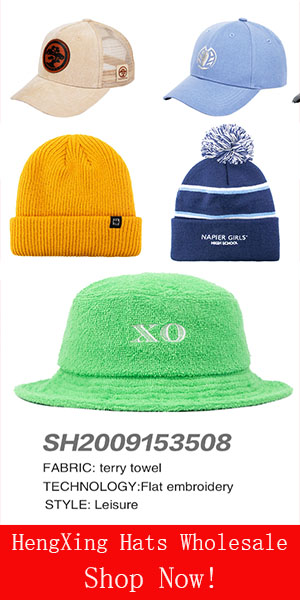
Cosmeceuticals represent the merging of pharmaceuticals and cosmetics. An example might be the combination of lipstick with an antioxidant or face serum with retinol. The difference between these and traditional skin care products lies in their creation. They are formulated by medicine and science from scientists in white lab coats who employ measurable and clinical standards.
There are greater advantages to cosmeceuticals than cosmetics alone boast. Yet the claims are not allowed to be precisely medical. You will not need a prescription from a physician to purchase them. You are also able to utilize them continuously instead of for short-term benefits. These blends between traditional cosmetics and medical drugs include potent levels of powerful active ingredients that are typically combined together. It leads to results that are considerably more effective for the users.
The Results Can Be Significant
The greatest factor that women love in cosmeceuticals is that their results are superior to anything they have seen with normal cosmetics. Women have become accustomed to mass-market department store, pharmacy, and grocery store cosmetics that only deliver short-term beneficial effects.
When a woman picks up a cosmeceutical product though, she reads a different lineup of active ingredients within their formula. This often includes such elements as marine and botanical extracts, peptides, and vitamins. This is what strictly defines a cosmeceutical.
These always available over the counter beauty aides and skin treatments are generally a non-FDA regulated blend of pharmaceuticals and cosmetics. In other words, the product claims to achieve the quantifiable benefits of a medicine. The sales of these products have been growing over time. Back in 2006, estimates for American-based sales of skin product cosmeceuticals were for $6.4 billion in yearly sales.
Cosmeceuticals Are Dual-Use Products Not Recognized by the FDA
It is the dual-use nature of the products that differentiate them in the marketplace. These cosmeceuticals possess two primary uses. Examples are anti-dandruff treatments that are drugs for treating dandruff combined with cosmetic shampoos that clean the hair. Other examples include antiperspirants which are also deodorants and toothpastes formulated with fluoride. Some of these types of examples must live up to both the standard of FDA-approved drugs and cosmetics. Moisturizers or make ups that deliver skin care protection from the sun are a prime example.
Interestingly enough, the FDA does not acknowledge such a term as cosmeceuticals. To them formulas may only be cosmetics, drugs, or soaps. Yet legally the phrase cosmeceutical has no basis.
This is because the FDA does not approve or disprove cosmetics, though it rigorously reviews and regulates medical drugs. So when a cosmeceutical product makes exaggerated claims that it delivers medicinal benefits, it would have to be approved as a drug by the FDA. As far as the FDA is concerned, cosmeceuticals are not their own unique division of beauty products, but only a clever marketing concept and term.
What Cosmeceuticals Are Not
Cosmeceuticals are generally not classified as medical drugs by the FDA. When a brand comes out with a new product that boasts it will impact a function or structure of the human organism, the FDA calls this a pharmaceutical product. They then demand that the company provides serious clinical trials to demonstrate not only effectiveness but also safety. If the claims of the cosmeceutical product prove to be accurate and repeatable in strictly controlled clinical trials and scientifically based studies, then the FDA would treat it as a new drug, not a cosmetic or a cosmeceutical.
For one of these products to be permitted to make the claim that it eliminates acne or reduces wrinkles, it would have to provide a substantial body of tests and clinical trials in order to effectively demonstrate such claims. This would have to be performed in controlled consumer lab testing facilities to demonstrate persuasively their preservative efficacy and stability along with safety.
What Are the Most Common Uses of Cosmeceuticals?
The most popular use for these various cosmeceuticals is for addressing signs of ageing such as wrinkles and fine lines. They also deal with sun damage issues, acne, and pigmentation of the skin. It is the particular extract ingredients that give them the power to target dehydration and acne scar tissue to provide women with younger looking, smoother skin.
Another important characteristic of these cosmeceuticals is that users apply them directly and topically to the skin. They do not simply sit atop the surface of the skin once applied. Instead, they penetrate deeply into the inner levels of the skin to those skin layers where the collagen, elastin, and cellular activity exist.
What Key Ingredients Should You Look for in a Cosmeceutical?
The best and most effective cosmeceuticals come with some or many of these potent natural ingredients:
Glycolic, Lactic, Salicylic Acids (BHAs and AHAs): These target pigmentation and congestion, while also helping to refine the appearance and texture of the skin. They are also highly effective for those suffering from acne.
Hyaluronic Acid: Which hydrates and holds moisture within the skin.
Vitamin A (Retinol): Retinol is renowned for increasing the speed of the skin’s cell renewal processes. As such, it targets both sun damage and pigmentation of the skin. It also assists in smoothing skin texture while reducing the scar tissue appearance.
Vitamin B (Panthenol and Niacinamide): Vitamin B promotes healing and assists in preventing a loss of moisture.
Vitamin C (Magnesium Ascorbyl Phosphate and L-ascorbic Acid): This is a potent antioxidant that increases collagen production and is useful for individuals who are concerned about skin lines and wrinkles.
Antioxidants (Green Tea, Co Enzyme Q10, Vitamin A, Vitamin C, Vitamin E): These strengthen and support a person’s skin and also eliminate damage caused by destructive free-radicals.
In Conclusion
Individuals should always practice their own due diligence before they invest in cosmeceuticals. It is most important for consumers to keep in mind that these products have not been tirelessly investigated by the FDA. This does not at all mean that no benefits exist from using the products, only that their claims have not been substantiated by carefully controlled lab tests and scientific studies which the FDA signs off on afterward.
The Plastic Surgery Institute of Miami are experts in cosmeceuticals and varying cosmetic surgery procedures. The doctors at PSI Miami are all board certified by the American Board of Plastic Surgery and have the expertise to assist you in what you’re looking for. Contact PSI Miami at 305.446.7700 or visit their site at www.psimiami.com to find out what’s the best anti-aging treatment to undergo.

























